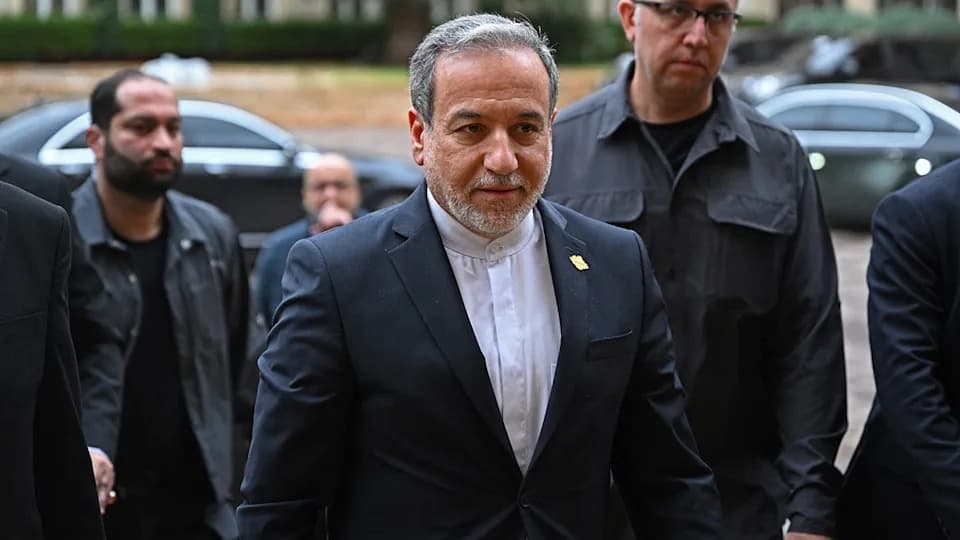Key points: Iran’s foreign minister, Abbas Araghchi, told Al Jazeera Tehran is "not in a hurry" to resume nuclear talks with the US and will only take part in indirect negotiations if Washington approaches from an equal, mutual-interest position. He dismissed reported US demands — including direct talks and a halt to enrichment — as "illogical and unfair." Araghchi also said about 400 kg of 60% enriched uranium is "buried under the rubble" of struck facilities. Regional criticism of Israel and divergent international responses to sanctions complicate the diplomatic outlook.
Iran Says It’s “Not in a Hurry” to Restart Nuclear Talks — Seeks an ‘Equal, Mutual-Interest’ Approach

Tehran — Iran says it will not rush back into talks with Washington
Iran’s Foreign Minister Abbas Araghchi told Al Jazeera that Tehran is “not in a hurry” to resume negotiations with the United States over its nuclear programme. He said Iran remains willing to engage in indirect talks, but only if the US approaches negotiations "from an equal position based on mutual interest.”
Araghchi criticised reported US conditions for reopening talks — including a shift to direct negotiations, demands to halt uranium enrichment, and limits on Iran’s missile holdings and regional relationships — calling those conditions "illogical and unfair" and therefore impractical.
"It appears they are not in a hurry. We are not in a hurry, either," Araghchi said.
Regional context and diplomatic signals
The foreign minister said a growing regional "shared understanding" about Israel is shaping diplomacy in the Middle East. In the interview he strongly criticised Israeli leadership, accusing Prime Minister Benjamin Netanyahu of actions that, in Araghchi’s view, have helped make Israel seen as the region’s primary adversary.
Two days earlier, Oman’s foreign minister publicly criticised Israeli policy at the IISS Manama Dialogue 2025, calling Israel a principal source of insecurity in the region and urging Gulf states to change a posture that has tended to isolate Iran. Oman has long acted as a back-channel mediator between Tehran and Washington on issues including the nuclear dossier, financial matters and prisoner exchanges.
Recent incidents and claims
The interview followed media reports that the US administration recently sent a message to Tehran via Oman; Iran’s government spokeswoman confirmed that messages were received but did not disclose their content. The White House has not publicly confirmed sending such a message.
Araghchi also said that "almost all" of Iran’s roughly 400 kg (880 lb) of 60% enriched uranium is now "buried under the rubble" of sites struck in recent attacks. He said Tehran will not attempt to recover or move the material until conditions are right and that the true state of the material will only be known after it is excavated.
International responses and sanctions
The foreign minister noted that China and Russia have publicly stated they do not recognise recent measures reimposed by some Western powers. France, the United Kingdom and Germany have signalled a desire to restart talks with Tehran, but Araghchi said no substantial progress has been made. Those European countries have also imposed sanctions and restrictions related to alleged Iranian drone exports to Russia and concerns about its nuclear activities.
In September, France, the UK and Germany announced the suspension of bilateral air services agreements with Iran, affecting carriers such as Iran Air. Some flights appear to be returning: Iranian state television showed an Austrian Airlines flight landing in Tehran’s Imam Khomeini International Airport, and Germany’s Lufthansa has said it plans to resume services, though precise dates have not been confirmed.
Outlook
Araghchi’s comments signal that Tehran intends to maintain leverage in any future diplomacy, conditioning talks on what it views as a more balanced approach by the US. With reimposed sanctions, regional tensions and competing international positions, prospects for a quick diplomatic breakthrough remain uncertain.
Help us improve.


































